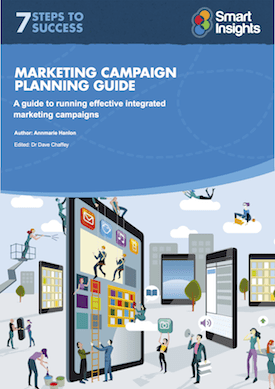Ideas on making your marketing campaigns more effective
As the take-up of smartphones continues to grow with 61% of adults now using one - it’s changing the marketing landscape at an incredible rate. Ofcom’s new Communications Market Report offers great context as to why your marketing might be outdated and getting results that don’t match your experience. Here’s 2 snippets:
- The average adult in the UK spends over half of their waking hours engaged in media or communications activities. On average, UK adults sleep for 8 hours 21 minutes in a 24-hour period, while they spend 8 hours 41 minutes engaged in media or communication activity.
- UK adults squeeze over 11 hours’ worth of communications and media activity into less than nine hours. The total volume of media and communications activities undertaken by an individual each day equate to 11 hours 7 minutes. But as some media activities are conducted simultaneously, this is squeezed into 8 hours 41 minutes per day.
The take-away here is simple - the environment, the channels and likely your consumer, is different to just a few years ago - especially younger audiences who equate even SMS text messaging as old, pointless tech - and would rather What’sApp than pick up the phone. Rapid, constant sharing.
7 mistakes to avoid in your next campaign
- You misunderstand, or have not defined, a potential audience. By far the biggest and most common problem is not specifically defining who you want to do what. So start with ‘Who’ - forget demographics which introduces wild variations and assumptions - for example how similar are ‘female 45 year olds in London’? Instead build representative personas that focus on personal values, motivations and behaviour. This is essential to strategic, creative and campaign planning, and of course media and channel selection.
- No reason ‘Why’. Why should those people - those personas - care for your campaign message, what reward will they get and what’s in it for them at EVERY touch-point prior to transaction. Why will they see you, why will they share / comment / like and why will they take the next step. The fix is as simple as it is difficult - re-orientate your plan around their reasons why.
- Success is not pre-defined. This is the second most common issue for ineffective campaigns that we see. If you know what the business goals are and how they cascade in to marketing then you can plan to succeed. Business goals enable SMART objectives, in turn enabling useful KPI definition to manage specific tactics and channels that are relevant to a commercial output. Sounds simple, and it is, though it requires we use historic data and model likely success. Simple yes, easy no. Sourcing those skills - in or out of house - is critical to success.
- No strategy. Strategy is not about the operational effectiveness of your campaign - don’t deep dive into tactics. Strategy connects the reason why with your brand, and ultimately your goals - and there are multiple strategies that will meet your goals - and this is why it’s difficult. Strategy understands and respects market position, the business’ goals and stage of maturity, the brand character, communications goals and message, the audience and segmentation within it, data and budgets, the ROI required, and of course the channels and marketing mix - our choices.
- Product before brand. A huge missed opportunity that we can see brands getting wrong, especially in social media, is pushing products at people rather than creating, building and using their brand as a vehicle in their target audience’s community. Today, brand is a tangible vehicle that offers a means to gain permission between the product - the transactional - and what the consumer is interested in, their world. Your brand is the most potent element in your arsenal to build interest in content and social media. Define it well, and use it everyday to build relationships with customers and fans.
- Poor creative thinking. Creativity might well be marketing’s most not-so-secret weapon, certainly it’s central to successful content and social media marketing. Our ability to combine commercial relevance with brand narrative and ensure that our marketing serves somebody somehow - whether that’s through some form entertainment or problem solving and education. Marketing requires ideas that engage and digital channels, especially mobile and social media, make this inherently more possible that it has ever been. More so, we can iterate and improve as we go, using data, soft launches and just basic testing. This is one of the key reasons that good agencies make sense - the ability to problem solve and provide creative ideas - none of it’s possible though without a clear brief.
- No data vs Good data. Without measurement there’s no success tracking, no in-campaign refinement and ability to pivot and no re-learning for future campaigns. If we can’t measure we can’t manage. The lesson is well repeated - use data to inform campaign objectives and KPIs and then make data serve us in the form of a campaign dashboard - this enables campaign management and review. This is another reason why data scientists are becoming the hottest recruits in business - for starters though, Google Analytics, or tools such as KISS metrics, will more than suffice.
- One Hit Wonder. I know I said 7! My thinking here is more an observation in that I wonder if the nature of campaigns creates the problems above? By their nature they design one-hit wonders centred to products and services, such as launches or sales drives. How do we re-focus the meaning of campaigns to be ongoing, linked and more natural peaks of activity?

Recommended Guide: Marketing campaign planning
Our campaign planning guide for Expert members covers 7 Steps to make your campaigns more effective using our RACE planning framework and campaign template.
Download Campaign planning guide








